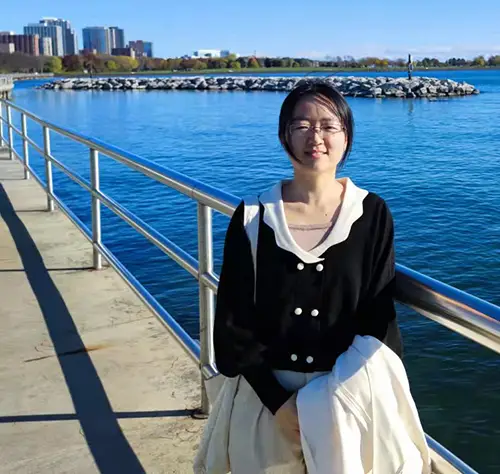Sun Developing Structural Proteomics

Assistant Professor Jie Sun’s interest in mass spectrometry and structural proteomics began during her undergraduate studies and continued during her PhD studies and postdoctoral research. “The ability of these technologies to unravel intricate biological processes and contribute to advancements in pharmaceutical research fascinated me,” she said. “The prospect of alleviating human suffering caused by diseases through scientific discovery is incredibly rewarding.”
Her research focuses on developing mass spectrometry-based structural proteomics to study higher-order protein structures and functions. The aim of her lab is to understand protein structures, interfaces, solvent accessibility, binding affinities, and folding/unfolding mechanisms. “My lab primarily focuses on membrane proteins, developing novel methods for footprinting these proteins within membrane mimics and eventually in cellular environments,” Sun said. “Our work has significant applications in drug screening and understanding disease mechanisms, including cancer and Alzheimer’s disease.”
One of the key approaches used in her lab is fast photochemical oxidation of proteins (FPOP), where they map proteins by reacting them with hydroxyl radicals generated from hydrogen peroxide by a pulsed laser. This reaction “paints” surface-accessible amino-acid residues, allowing them to study protein-protein interfaces, affinities for small amounts of proteins, drug discovery, and epitope mapping. FPOP is being adopted by biotechnology companies to develop therapeutics.
Sun joined BCMB in August 2024. Students interested in joining the Sun Lab should have a foundation in chemistry, particularly analytical chemistry and biochemistry. “My teaching philosophy emphasizes hands-on learning and critical thinking, preparing students for successful careers in scientific research,” Sun said.